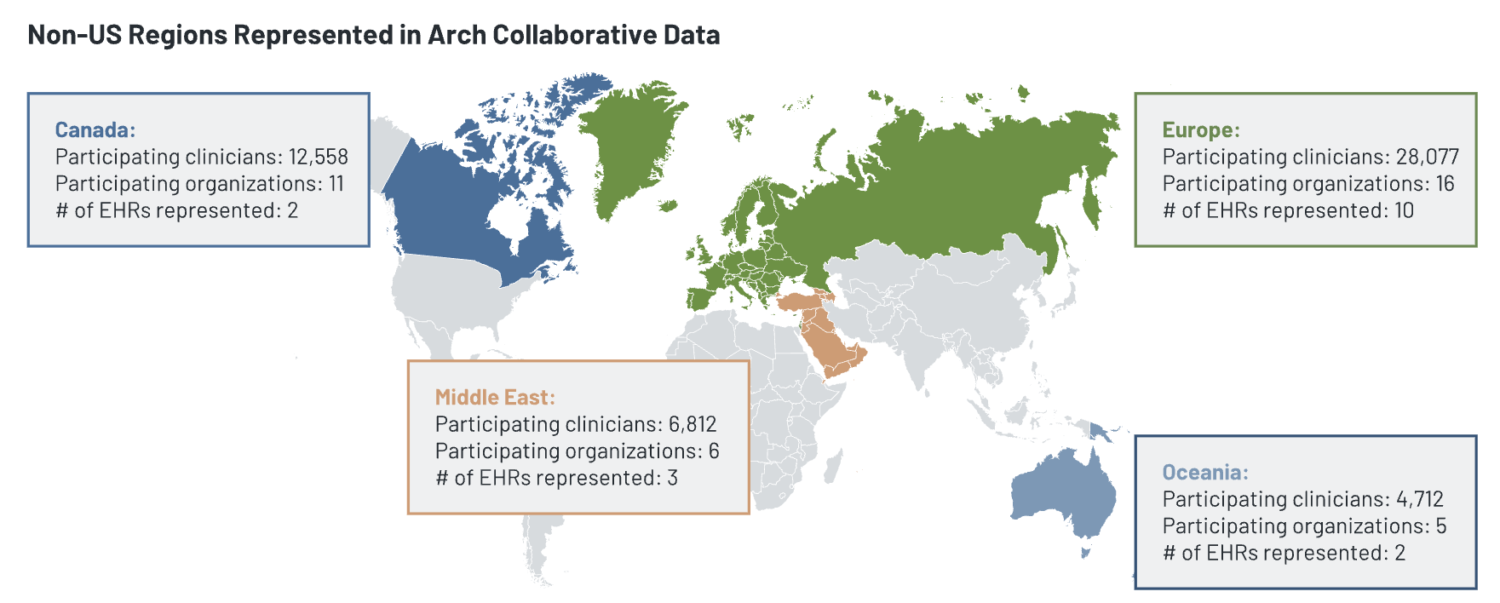
What You Should Know:
– As healthcare organizations worldwide increasingly prioritize the optimization of their Electronic Health Records (EHRs), a new report from the KLAS Arch Collaborative reveals significant global disparities in clinician satisfaction, with the Middle East setting a high benchmark for success.
– The “Global EHR Satisfaction 2025” report, released in May 2025, analyzes data gathered over the last three years from 38 healthcare organizations across Canada, Europe, the Middle East, and Oceania, offering insights into what drives a positive EHR experience for clinicians.
– The KLAS Arch Collaborative, a group of healthcare organizations committed to improving the EHR experience through standardized surveys and benchmarking, aims to help organizations fully support their clinicians by identifying universal best practices. The report emphasizes that organizations not actively measuring their EHR’s impact are missing opportunities for greater alignment and clinician satisfaction.
Middle East Sets the Standard: A Model for EHR Success
Healthcare organizations in the Middle East have emerged as a model for clinician EHR satisfaction, achieving a remarkable Net EHR Experience Score (NEES) of 75.4 (on a -100 to 100 point scale). This success is attributed to strategic investments in three core areas: foundational infrastructure, sustained training programs, and effective governance that includes clinician input. These organizations prioritize system reliability and speed, offer ongoing, role-specific education, and ensure the EHR evolves with users’ needs.
In stark contrast, other regions report significantly lower satisfaction levels: Canada (NEES 27.6), Oceania (NEES 23.6), and Europe (NEES 7.3). The report indicates these regions often struggle with outdated or inconsistent infrastructure leading to performance issues, a lack of ongoing, role-specific EHR education, and governance structures where clinicians feel their voices aren’t heard in decision-making processes.
The Global Challenge of Clinician Burnout and the EHR’s Role
Clinician burnout remains a universal challenge, with the report noting that across most regions, including the U.S., about one-third of interviewed clinicians experience burnout. The EHR is frequently cited as a top contributor to this burnout. Clinicians in Oceania report the EHR as a burnout contributor most often (35% of those reporting burnout), while those in the Middle East cite it the least (18% of those reporting burnout). The report underscores that improving EHR efficiency is key to boosting satisfaction and, consequently, reducing burnout.
Unpacking the “EHR House of Success”: Universal Best Practices
The report organizes its findings and best practices according to the “EHR House of Success,” a framework starting with a stable EHR Infrastructure as the foundation, supporting three pillars: EHR Education, EHR Governance, and EHR Personalization.
- Solid Foundation: The Critical Role of EHR Infrastructure A reliable system with fast response times is non-negotiable and organizations’ first priority for improving EHR satisfaction. Frequent slowdowns or crashes disrupt workflows and diminish care quality. While 80% of clinicians in the Middle East agree their infrastructure is effective, less than two-thirds in Canada (64%), Oceania (60%), and Europe (50%) feel the same. Best practices include proactive system monitoring, scheduled regular downtime, and staying current with software and hardware updates.
- Empowering Clinicians: Effective EHR Education and Training Satisfaction with EHR education is lower in Canada, Europe, and Oceania, often due to under-resourcing. The report stresses that robust onboarding (at least 3 hours, ideally 11+ hours) and ongoing annual training (3-5 hours), especially when workflow-specific, are essential for user confidence and efficiency. Again, the Middle East leads, with 90% of clinicians agreeing their education is effective.
- Driving Alignment: The Power of Inclusive EHR Governance Effective EHR governance involves clinicians in overseeing EHR management, usage, and optimization. In the Middle East, 87% of clinicians agree their organization/IT leadership delivers well, citing strong leadership and clinician engagement. In contrast, clinicians in other regions often report an “us-versus-them” culture with IT and frustration over a lack of voice in EHR changes. Shared ownership between organizational leaders and frontline clinicians is paramount.
- Boosting Usability: The Value of EHR Personalization Personalization allows users to tailor the EHR (e.g., order sets, shortcuts, documentation templates) to their specific needs, streamlining tasks and boosting efficiency. Any adoption of personalization tools tends to increase EHR satisfaction. Clinicians in the Middle East report the highest adoption of EHR personalization (86%), attributed to good educational resources and inclusive governance.
The “Global EHR Satisfaction 2025” report ultimately emphasizes that strategic, sustained efforts in infrastructure, education, governance, and personalization are key to unlocking the full potential of EHRs, supporting clinicians, and ultimately, revolutionizing patient care worldwide.
